|
Daralyse Lyons is a classically trained actor who has become an avid improvisational artist, regularly performing in two nationally recognized improv troupes. She finds working with Moritz’ poetic style inspiring. William J. Rittweger is a 20-year-old up-and-coming actor, screenwriter, director, and poet residing in Glassboro, N.J. This is his stage debut. The world Dennis Moritz creates can be summarized by a pull quote from our iMPeRFeCT Gallery shows (January 2019). The following play will premiere at the Boog City 13.5 Arts Festival on Sunday, February 16, 2020. It is the first installment of Dennis’ “Muncie, USA” series which I will film without a script (interviews, locations, situations); then Dennis will script the stage play (also to be filmed); then I will write the screenplay based on his stage play and return to Muncie, IN to start the process all over again. Love Luv by Dennis MoritzSHELLI how many how many pills/ if you spent on what the pills cost/ if you/ did they did they/ every man who works here can you name one who said no/ i i we here/we/ are you here look at me can you look/ how many pills how much drink how would you could you did they all at one time/ did they run a train/ did you say to them come over come over to where you live all at the same time/ we have customers that depend on us to do their food in sanitary/ how can they depend/ what do you/ does income or morality does choosing health/ why why why why did you do you have it on with all these guys/ all these guys where you sometimes work/ 2. (actress next to henry moore sculpture.) knocked up seventeen he hit my eye black yellow eye my baby boy ok / my mother my/she barely looked never did see me/ my elder brother we were step kids one then another five of us steps/ year then next year then next came along like that/ my eldest my brother then my older sister raised us they were that/ i preborn one pound six in the incubator three months why i’m short and a redneck/ knocked me up knocked me in the eye showed my mother/the hospital said/ then he took me and my son to fort lauderdale florida/ at the ocean i was afraid saw the water there whoosh/ sure it would suck me in/ from the ocean right then left onto the bus/me my baby boy onto muncie/ never looked back will never leave muncie indianna 3. (actress next to picture of artaud.) people know. not about one person. nights where my mind went to war with my heart. fight between what i knew, what i felt, what i had to do. decisions made under moon. i do not want potential. never beg. lied to. disrespected. cheated on. swear they know. loved in private played in public. magic. holly holly christmas. if you want sugar coated eat a donut. another sleepless night. freaky goals. strong women keep their lives together. tears in their eyes. continue their day with a smile. shitty childhood. shitty experiences. shitty person. not me. TWO DOLLAHSJudah (towel, spray bottle, squeegee, washing car windows as cars are forced to stop at light. actor mimes wildly. supplemented by video. traffic sounds. video on then shuts off. Judah eats from mcdonalds bag.) wake up in the morning. eggs coffee. coffee eggs. eggs. Philippines. 7000 islands. one of our dollars 253 of theirs. 253 to one. live there ten dollars a day. rent a house four bedrooms two and a half baths, 350 a month. (pulls out cellphone) if you want to know someone there correspond with someone there verify the picture. call them up tap tap call them up. visual recognition facial recognition ask them questions. tap tap. same as a meeting in the flesh same as meeting in the skin, bone and bone and bone an. music of one individual another individual. same as the meeting right here one heated biology and another heated biology. i ask her questions. honey. sweatheart. what’s it like today. clear and sunny gray day iky high humidity day is it rain chilly/need a coat? sweater? something. hear their music. listen to their music. here. there. rub dub dub. check out the weather report on the screen. is it the same. does it match. what they say what she says. does it match the weather called up on this screen. check it. check it out./ Phillipines that’s the place. moto scoot the island. moto scoot off the island. moto scoot onto a go-to, onto a floating go-to the flat wooden boat/moto scoot down a ramp onto the go-to boat. float onto island number any number 1 to 7000. float out to a island right there. see the hump of earth hump of rock putt putt then you’re there. any Phillipine island. Ahh. Ahh. Shangri La. i tell her hold up your phone let the picture breath show me where you are dear honey pie. have the camera turn full panorama. will yah. sweet honey pie. show me where’s the sky clouds where’s the water where’s the house in which you live. show me. show me where you at. (using squeegie and cloth.washing and polishing.) same thing exact same thing look through your window window-shield/ tap tap/window-shield of the car. look through that phone windoh screen. we’re here. we are here. everywhere. ev/ery/where. you and me and you altogether all together. now. flow. it’s all a flow. here to there. there. putt putt. she’s a nurse see her on my screen wow 5 feet 1. see her. my screen kinda small can you see her. there. wow. we’re all there. everyone in the world right here. she dressed in white. is it light white right. she dressed in blue/green blue/turquoise blue. greeny blue. bluey. round and soft. look at those eyes. huh. what a warm and friendly love anybody once she once she. love anyboy. those lovely brown deep brown eyes wanting to love any/bod/y. two dollars from you would help my blessed day. two dollars from you would help my blessed day. two dollahs. Birthday Wishes Shel (dolls. hanging colorful jackets, tight jeans, high heeled shoes scattered. birthday cake. candles are lit by actor during the following. candle shadows flicker as piece evolves.) universe not in a rush. i am. anxious. stressed. devastated. share what you have. call me crazy. call me/bitch/call me batshit. he stuffed my love in a sack/said no to me. right. said no. no to me. armed and dangerous. weapon of choice. cold hearted love.(sings) cold hearted love.(stops singing) lah lah lah yah yah yah. (sings) cold hearted love. (stops singing) i’m armed and dangerous. did you ever. turn over. i did. turned myself over. bright in the morning. bright in the evening. empty. gone. waterfall. off a cliff. (who wants to talk. who. you. do you. I'll spend time with you.) he blocked me. i begged. he blocked me. i begged. all day night. him. walking in dreams. vision as i walked streets. if it was a drug pill injection. an old man seventeen years older than me. first there was kindness. years of kindness. things. seventeen years older than me. male voice: buy those tight jeans sweet girl. buy yourself a pretty painted car. red. show yourself red. shel: silver stars pasted to the walls in the bedroom. flicker lights. soft yellow walls. male voice: keep money in your pocket sweet girl. at least some twenties. nick nacks in the house. get some clocks. birds. what are those things. statues made of white and gold glass. solid old looking statues of folks. old women statues. shel: i like those statues. ceramic things. male voice: peaceful. farm animals. everything so at peace. shel: poor. dirt poor. dirty poor. before that. i was and am poor. time passed went on. then he blocked me. said no. seventeen years older divorced me. male voice: don’t want to be married anymore, shell. we’ll work out what you have and what i have. shel: when people wave you away wave me off. to never have had. then to have. then he said. don’t want to be married anymore. don’t be lied to, cheated and disrespected. do yourself up. for yourself not him. any him. (musical sound, lights candle. begins ritual.) i pray you heal from things no one ever apologized for. when you see a person’s soul. (musical sound) she no longer settles for potential. the potential to have her heart cared for. (musical sound) there’s strength within you even when you feel weak. (musical sound) think about how you were able to give love. (musical sound) are you dreaming dreaming of me. (musical sound) don’t blame a clown for acting like a clown. ask yourself why you keep going to see the same show. (musical sound happy birthday happy birthday happy birthday. (pause. actor blows out the candles.) ABOUT DENNIS MORITZ Dennis Moritz's work appears on mainstage and in improvised spaces. Producers include the Public, Painted Bride, Freedom Theater, Nuyorican Poets Cafe, St. Marks Poetry Center, Annenberg, Bowery Poetry Club, Sticky, Theater Double, N1, Theatre Ariel, HERE. He prefers to work in bars and art galleries. Currently he's in partnership of Robert Baum, pushing N1 theatre up the hill and down the road. His theater work has been published in theater magazines and poetry magazines. Angel Hair/United Artists, the longtime poetry press, published two collections of his theater works, the only plays in that catalogue. His work has been supported by NEA and Pennsylvania Council grants. In 2010 he completed an M.F.A. in playwriting at Temple University. ABOUT Robert Craig Baum Robert Craig Baum has managed, directed, and produced Dennis Moritz plays since 2011. His forthcoming book, They Fade, The Words Fade: On the Metabolic Theatre of Dennis Moritz, will be published in 2020. Since 1995, Dr. Baum has provided dramaturgy, stage management, design, and educational support for some of the top black theatre talent of the past two generations, including Michael Henry Brown, Judi Ann Mason, Carl Hancock Rux, Pearl Cleage, ntozake shange, Rita Dove, August Wilson, Langston Hughes’ Black Nativity, Leslie Lee, Gus Edwards, Paul Carter Harrison, Marsha L. Leslie, and Harry “The Blacklist” Lennix. He is also a screenwriter, philosopher, executive producer, documentarian, and musician who currently resides in Washington, D.C. with his wife and four boys.
0 Comments
by Robert Craig Baum
Photo: Uncle, Bowery Poetry Club, June 17, 2012 (one of the last avant-garde theatre performances at BPC before it was bought and renovated to become the Bowery Ballroom. Featuring Billie Jo Konze (from Minneapolis, MN) in the lead role.
I
Dennis Moritz—the person, the writer, the auratic voice of theatre’s double—is the subject and object of legend. Anyone who knows anything about Lower East Side (LES) dramaturgy or the Philadelphia avant-garde knows Dennis Moritz. But, strangely, within a few months, his work disappears and you start to wonder if the conversation you just had with that person using this phone or such-and-such email account actually took place. Moritz is neither here nor there. He and his work are wonderfully interdimensional. But, you need to know before reading, before directing, before even thinking of acting in his plays – you need to know that he and his work are a royal pain in the ass to find and develop beyond a one off show or a theatre course or a conversation over bagels in the LES.
Yet at the same time, there’s a performance and paper trail. This theatre does, in fact, exist. Dennis Moritz does, in fact, exist. I have met him. Many times. I have shared meals with him, walked Chelsea with him, watched him eat pancakes in Quechee, VT after our café show They Fade, The Words Fade (January 2012). I have studied his plays as part of my own research bibliography at the European Graduate School (2003-2010) especially when I attempted to revisit ideas from the August Wilson Fellowship (1998-2001) that brought Dennis to me by way of our Mother’s sacred and profane intervention at Penumbra Theatre (April 1999).
But, like the work’s stage and academic classroom history, much like Suzan-Lori Parks’ inclusion then expulsion from The Norton Anthology of American Literature, Dennis’ work has achieved anthological status (Something To Hold On To collection and his poetic entries in Aloud: Voices from the Nuyorican Poets Café (1994).
In a state of utter confusion—which summarizes my three years in Minneapolis-St. Paul as a doctoral candidate before European Graduate School—I received Dennis’ first collection (same title as the play that eluded me before, during, and after my first encounters with Lower East Side artists from the 80s and 90s). It just happened, like the way most of the audience received “Uncle” at the Bowery Poetry Club (June 2012, Father’s Day). Something happened. I was here one moment then I was there and now I’m here again. Before. During. And after (shock) experiences of performing or attending his work.
Once upon a time, the Mother of Us All, Laurie Carlos, stopped me on my way out of a for colored girls rehearsal at Penumbra Theatre in St. Paul, MN April 1999. I was an August Wilson Fellow, she was curator for their new works project. Mother had that look in her eye, the one I associated with “battle stations” aka “I’m about to drop some truth here, Robert, so you better listen.”
Like most theatre students of the mid-to-late 1990s, I was mesmerized by All Things Suzan-Lori Parks; still am. In her work I had found a new way of approaching American theatre from within performance art and other avant-garde traditions, perhaps even the musical (1960s hey day) and classical 19th century (Melville and Hawthorne and Stowe) and modernist 20th century (Faulkner and Ellison and Pynchon). She struck me as a magnetizing force; still does. Very much. Clearly, the producers and creators of Hamilton were also paying close attention to her work both at the time of its ascension into classrooms, journal articles, and granting circles. Perhaps the Hamilton team also located in her work prototypical remixes of American stage traditions (realism, magical realism, hybrid dance/spoken word) as well as encountered a dramaturgy built on the sheer brilliance of Topdog/Underdog, Parks’ Pulitzer Prize winning drama of 2000. It’s hard to say. But, it’s safe to say Hamilton would not have been able to premiere on the Lower East Side at The Public let alone create an Andrew Lloyd Webber/Cameron Mackintosh level audience-loving, history-making, and return-of-investment championing stage spectacle if it hadn’t been for Parks’ work.
Yet, even there, there’s a secret history.
“This is the source, Robert,” Mother of Us All said that April without missing a beat, without releasing me from my look of confusion as I just stared at the cover of Something To Hold On To. She didn’t let up for ten, no seventeen years. I immediately read “Uncle” when challenged to find the “source code.” While sitting in Lowetown, St. Paul at the Red Dog Café, I had my “eureka” moment.
So, I called Mother: “It’s Uncle, isn’t it?” I said with great enthusiasm but with an intonation that also communicated my snickering subversion. “Yes,” She affirmed. I continued: “With the BACA downtown writers and performers there was a before and after ‘Uncle’ moment, wasn’t there?“ / “Yes.” [2]
Photo: Poster for THEY FADE, THE WORDS FADE (January 2012, Limerick Irish Eatery, Quechee, VT which is now Pierogi Me!)
(It was like we were speaking in code about the source; two agents working the wings of American theatre’s strange academic and commercial territories. In the theatre lobbies, university libraries, international conferences that brought a strange tribe of dramaturg and dramatist and scholar together in cities far and wide: LA and Minneapolis and Boston and Broadway and DC and Atlanta and Austin and Helsinki and London and Paris and Zurich and Tokyo and Copenhagen and Tallin. Something was up during the late 80s and early 90s that is archived in Dennis’ work, something I immediately recognized. It was like receiving a “Knock, knock Neo” Matrix moment. A tap on the existential shoulder and a hip check out of one cosmological time/space experience into a strange and familiar world. In other words, this experience of reading Dennis Moritz, talking about Dennis Moritz, Facebooking with Dennis Moritz, producing Dennis Moritz (we’ll get to that in a bit!), designing sound and lights and costumes and stage for Dennis Moritz, sharing draft beer and burger and great conversation with Dennis Moritz in White River Junction, VT, shooting the shit in my Quechee, VT living room after he took a nap—you know—like you do—a nap. Talk about a comfortable relationship immediately struck between dramaturg/director/producer and playwright. “Man I’m tired,” he said as he ascended the stairs. My kids and wife introduced themselves to him in December 2011; he and I talked; I could tell he was tired. So, he took a nap in the sunroom. Again, like you do.
While sitting at the dining room table that would become our situation room for They Fade, The Words Fade (four performances at the Limerick Irish Eatery in January 2012) I glanced through the sliding glass door and thought: Is this how it happens? Is this what Mother of Us All wanted in April 1999? Did She know? Had She already visited this moment, you know, Mother style? I think She did. I think She knew. In fact, I know She knew because I asked her October 2015 at Dennis’ apartment during a tempest that shook the CoOps without mercy. “You needed to know that you were and still are—all of you—only working with part of the story. You need this part of the story so we can tell more of the story.”
(See what she did there? She didn’t disrespect Suzan-Lori Parks or prop up Dennis Moritz or challenge the prestige or impact of other Lower East Side playwrights and artists. She merely wanted implant this bit of source code data into the theatre machine and help us all visualize and listen to another conversation within the larger cacophony of expression called the American theatre archive. When she said “all of you,” she was privately challenging us all. Everyone. Theatre historians and dramaturgs and Artistic Directors and the journalists who cover our art and the scholars who publish dissertations and articles and deliver conference papers and conduct regional workshops on contemporary American theatre—this is Mother saying from inside This World observations She has delivered from Between Worlds, what I call in the BlackTheatreWorld project: “the fourth stage of presencing and interdimensional metabolic dramaturgy” (forthcoming).
While holding Something To Hold On To, the Mother of Us All emphasized how “This [book] is what we all were aspiring to achieve back in the day. All of us. Most will deny it. But, Dennis is the source.” She had appealed forcefully to the dramaturg and literary criticism side of my brain. She also activated the writer, the producer, the designer, the composer, the historian, the professor, the fan of theatre that makes me think—transformative and entertaining moments I will never forget. “It’s all inside this book,” she insisted. We then concluded the moment by making some kind of strange impromptu hand-to-hand ritual gesture on the spot (like a kung fu high five or something), and she walked down the road to her car (there was never any parking at the cultural center) as I just stood there holding this book. Very. Confused.
Photo 5: Uncle at Bowery Poetry Club, Program Cover (dedication to Laurie Carlos, image by Ralph Steadman)
loading...
II
I didn't know it at the time, but she was right. This "all" she had described as a source code was a code in and of itself for all theatre of the 1990s and 00s. This "all" was a way of writing I had first encountered in dada, surrealism, German expressionism, Artaud, Genet, Albee, Sarah Kane: an affective, presentational style that had more in common with Brecht and Amiri Baraka than Tennessee Williams and David Mamet. This "all" was big at the time. Suzan-Lori Parks was the rave. Laurie Carlos was the source for Dennis. And now I was handed this book of plays that I instantly loved.
The Mother of Us All reminded me quite a few years later--during another apocalyptic moment of America's cyclical apocalyptic fits, to borrow from Lee Quimby--of the secret this great, underestimated, and wholly individuated theatre movement carried quietly into many different futures: "same room. . . same air" (Laurie Carlos, 2:05am, January 21, 2012).
What she meant by this centers our attention on one of the most radical (though basic) statements about artistic development I have ever encountered: theatre artists work best when supported (and challenged, of course) by a community of theatre artists. It is the job of producers and literary managers and directors and all support staff to nurture this "way" (think Zen) of being-in-the-world. This axiomatic notion drives all that Dennis Moritz has attempted to do since the 80s. This ethical, aesthetic, political, and personal understanding of how to create dramatic art absolutely cannot be fabricated; however, the conditions for this level of intense, productive, supportive, and revolutionary art repeat, recycle, present themselves again in American theatre.
2014 happens to be one of those moments, a quantum leap back and forward to engage, recover, and intensify the process of individual and institutional support that allowed for the emergence of theatre's most intense multiplicities experienced in the 80s and 90s. This is Dennis' time (and space) . . . again. . . .
Photo: Dennis Moritz, Grant/Delancy CoOp, same
Laurie and Dennis were forged in the same creative fires of the Lower East Side in the 80s and 90s as Suzan-Lori Parks. His work has been produced all around the country, settling in for a series of encounters at theatre and performance spaces (and projects) like The Painted Bride, the Joe Papp Public Theatre, Nuyorican Poets Cafe, Freedom Theatre, St. Marks Poetry Project, BACA Downtown, and the Bowery Poetry Club. He works regularly with David Marcus and Libby Emmons (Stickies) in New York as one of a series of regular playwrights working in small spaces (like Limerick Irish Eatery and the Main Street Museum in Vermont).
No one writes or thinks like Dennis. When we started regularly communicating with each other on Facebook, theatre wasn't our focus. We were both obsessed with politics and American culture right now in this strange "between" moment so many people thought would be the "promised land" post-Obama. Then, slowly, I realized I was talking with the playwright whose work was thrust in my hands the Mother of Us All.
Like her life's work, Dennis' art helps me breathe a little easier even though directing and performing his work is anything but tranquil. His characters say or half say or stutter their way through and beyond truth in search of something to hold on to. He is utterly fearless, inspiring-- demanding, in a very specific way -- an intellectual, spiritual, emotional, and physical commitment that shatters all artistic and audience expectations.
Plays like Genet at Mettray and Hungry Heart and a revival of Something To Hold On To, Uncle, and Just the Boys by N1Theatre/N1Academy (Vermont and New York City) continues his linguistic, structural, and spatial experiments (as in time space, as in slipstream, as in mesmerism, as in fantasy, as in unraveling the very fabric of what we all might be able to agree on and call "now" or "normal" or "Monday" or "America" or "Planet Earth" which I still think is best described as interdimensionl). Dennis presents these challenges in a way that quite frankly pushes directors and producers and actors and musicians to draw from everything they know, every experience they've had, and every way of thinking they've feared or found comforting -- it is all present. And it is the ultimate theatrical joy ride.
Photo : Uncle at Bowery Poetry Club, Program Cover (dedication to Laurie Carlos, image by Ralph Steadman)
RCB: How's that for the introduction, so far, Dennis? I should try to not be so understated in my enthusiasm about your work.
Moritz: lolololol
So. Why do you think 2017 is the right time to revisit your work, for example, Just the Boys? What features speak to this generation of audience?
Quick cuts. Mosaic structure. Self sufficiency of scenes. Music/choreography construct mini allegories. Brief punchy dialogue. Musical (language) monologues said rhythmically with under music. Coheres heterodox styles. Hail the internet jumbling. Twenty years ahead of its time. Your characters are so vivid and real yet enigmatic. What do you enjoy about them when you read or see them again here in this collection? Boys in the garage, their culture. How they have fun. Their methods of mutual emotional support. The Girls. Their culture. How they enact revenge when dumped. Funny. Jokes. Compelling milieu. Strong individuated characters. Strangeness. Familiarity. Lots of vitality.
Hungry Heart is essentially your meditation and remixing of the life and writing of Anzia Yezierska. Somewhere between adaptation and documentation, your play is unique to both your style and sense that she is still trying to speak to us again, just as you are attempting again. How do you convey this complex story (her life, her work) to the very Lower East Side culture out of which she emerged two or so generations ago?
Mosaic structure. Punchy scenes. Varying textures. A contemporary form. Anzia and Anzia's fiction retains vividness and authenticity as it is transferred into a dramatic idiom. The play is true to the feel and message of the original stories and their moment of composition while using contemporary techniques of structure and presentation. What's the appeal to this generation of Jew and non-Jew alike? The Jewish immigrant culture of the early twentieth century is of inherent interest to the NYC area. Many are descendents of that immigration. Because these stories are heartfelt and of universal appeal and identification, Hungry Hearts can be presented to multiple audiences.
Photo: Our state of the art under the stairs tech space at Limerick in Quechee, VT (January 2012)
What are these themes?
Romantic love. Misunderstandings between parent and child. The inclination of mainstream culture to stereotype and limit access of those judged to be different. So, Anzia and her stories and your project help us to see ourselves differently? Yes. Anzia's life itself is a modern parable. Anzia was born into an orthodox Jewish culture of defined roles. She made a writer's life. In doing this she abandoned traditional role models of motherhood and wife. A modern tale of female emancipation. What kind of access (or limits) does an embrace of multiple approaches to a subject provide you as a playwright? My process opens a way to enter pure art, image and scene jockeying, to enter the theater as art form, which means quick cuts, genre eliding, a way to own a flexibility allowed and expected of museum art, sculpture and painting. I often think my works need to be performed in museums, in museum performance spaces. A release from sequential narration and quotidian assumptions.
I'll jump right to my first, long-standing conclusion: you create multiple worlds and offer audiences a chance to see a single subject from many angles--like a theatrical art installation, a mosaic, a prism . . .
The installation is our mental cosmos. Lovely. Eddying. Eddying out. I write love lyrics and paeans to those sweet moments. Tell me more about how you engage in this process and approach with well-known and lesser-known historical or cultural subjects and themes? The prism fascinates me. Cubism. A deconstruction of cubism. (Joke.) How we appear how we are. Facest. Looks. Faces. Assemblages. I love the schism between how we feel integrated and whole while often existing as an assemblage of fragments. Acts we do intensely. Different. Various. Contradictory. Do they add up. Do they make a continuum. How do we relate to the contrary and dis-related identities we are. Rather than opt for a single through line or rising/falling action and other well-made play elements, you do something else that's fascinated me in particular since first encountering your work through Laurie Carlos and Penumbra Theatre in St. Paul. Tell me more about this "something else." I don’t relate to rising and falling narrations, the action of overcoming obstacles. The football game life, chess and checkers. Not how I experience life. Intermitances. Moments. Extended metaphors, radiant and informing. A plane or plate pulled out from a cubist simultaneity. One or two planes at a time. That is true to memory and reference. Discrete memorable events that continue to inform.
Here's where I find your life as a playwright and life as Dennis Moritz inseparable. One of the most "memorable events" you often site in our conversations over the years is your experience with BACCA downtown.
Yes. What was it about that experience that stayed with you? At BACCA the audience was assumed. We did not write for the audience. We wrote to extend the dramatic form and give voice to our idiosyncratic (idiomatic) selves. Subjective was sacred, where it all started. I continuously broke form. Even from work to work. I took that to be my job. A fabulous audience sold out BACCA. They went with us. Working hard with us. An obsession for the new and the authentic.
What lessons from BACCA can be carried forward to this moment? Perhaps some kind of embedded program or workshop. Digital archives (like a BACCA wiki) are already in the works at the N1Academy. But, BACCA strikes me as different from "community outreach" or "education" platforms. How does the BACCA experience get archived and yet not just become another theatre movement or moment stored on dusty shelves of theatre history's very limited, and extremely slanted memory.
Much work at BACCA originated from the nitty gritty struggle to stay alive and sane. Radical formal experiments devised to give those struggles shape and power. The BACCA theater scene educated. It should be parsed, imitated, reconstructed, reconstructed differently. Intense learning happened there. We were drawn together. My plays directed by artists. Distinct visions. Productions heavy with their subjective DNA. Fascinating to me as a wordsmith, a writer of theater pieces, theater works. After the first experiences I stopped including notes. The auteurs were going to rip. I took my challenge to write words that of tough identity and clear process. The auteur visions at BACCA almost always stayed true to the essence of my work. So, we need to build an archive of this disappearing work, right? Let the folks who were at BACCA have their say. Interviews. Preserve archival videos, pics, programs, artistic statements, reviews. Remount the many seminal productions. Archive the scripts. Archive artist careers.
Here's where drama and history and life and archive seem to come together in your work. In many ways, human beings--you know, the people who come to theatre--live lives that are extremely prismatic. How does that relate to the personalities and figures and (dare I say) "auratic individuals" who populate your drama?
Historical figures are prismatic, talked about, argued about, enmeshed in events that elicit debate. Their lives over we know them through report. There is a tendency to bowtie and clean up the narrative. I’m not interested in that. Life is fragmented, scattered, clear moments and fog. Instead of sequential narrative, I write scenes that are tiles, moments as part of a mosaic. Audience does assembly. The overview, metaview, even elements of narration, is the audience property. The theatre piece is a point for audience departure and interpretation. Like any other work of art. You tell me what it means.
Photo: Robert Craig Baum taking a page out of Tadeusz Kantor's directing playbook when he insisted he and the cast bring personal items to demarcate the stage area (as well as found objects for costumes and makeup and sound design)
III
It is my hopes that Genet at Mettray: Collected Plays of Dennis Moritz will serve as a source code for the reader, the scholar, the producer, the director, the colleague, the undergraduate and graduate student of theatre in general, Lower East Side and Philly theatre of the 80s and 90s through today.
May it fuck you up forever. May it challenge your comfort zones about theatre history, dramaturgy, theatre theory, historiography, theatre archivization, the academic territorialization of one set of theatrical memories over another. May it stay with you and shift how you think about other kinds of theatre, popular or not, international or national, poetic or realistic or surrealistic or Noh. May Dennis’ life’s work, found in both the Something To Hold On To and Genet at Mettray, disrupt, disturb, and deconstruct your notions of how to build a character, how to stage a scene, how to create events within scenes that become larger events the way a cluster of ideas and images ebb and flow, appear and disappear in cinema and other digital arts. May this work empower your craziest and zaniest and least orthodox understanding of who you are and what you do as a person or a playwright, director or dramaturg or theatre historian. May he surprise you. May he encourage you to search for and embrace all surprises that happen inside the theatre world of living ideas, moving concepts, and playful poetry.
May his work also serve as a burr, an errant burr that constantly asks for your attention, all of your attention. Not just a bit of this theory or a bite of that dramaturgical tradition. But, all of you. May it invite you to bring all of you to the space, mental and theatrical. May it forever prick your mind and cause you to remember who you are and what you want to do inside and outside the theatrical mentality of people and situations that simply are – they are here – they are a part of who we are – these characters, these situations, these events, these poetic shadows are all parts of a greater whole that Dennis sees as a structure, a method, a way to move through all the world’s stages.
So, we should remember him. Even if just for this moment. More than an exercise in dramatic memory and collective response to the human condition, Dennis’ theatre is a metabolic dramaturgy that demands all of you. . . yes, all of you. Yes. He has written short plays and poetic fragments and multiple act performances. His monologue Uncle inspired and influenced the early work of Suzan-Lori Parks as an extension of Dennis’ now three decade long friendship and collaborations with the Mother of Us All.
Yes. People in “the know” have considered Dennis’ work some of the strongest dramatic prose and performance art and experimental representational practices written this side of the Reagan Vampire.
Yes. His work remains under-produced—almost forgotten. But, it is this mystical quality and aporetic tendency of his work to become nomadic and foreign and strange yet at the same time as familiar as breathing. Yes. Dennis’ theatre an uncanny spectre, something familiar and strange like an invocation for his actors, collaborators, and audiences to finally deal with unfinished business (the literal definition of spectre).
Yes. Each time his work is performed, the artists must create new rituals and new ways of moving and talking and develop new approaches to poor theatre. Sometimes, it’s imperative to say “fuck it” and go out to the Dollar store and find some party favors for Something To Hold On To or Salvation Army store clothing racks for Uncle costumes.
Yes. Even sound design for a Dennis Moritz show becomes an overwhelming dance with Everything and an unbearable collation and elimination and application process where sound contributes to a spectacle space without any of the budget, any of the support staff, or any of the latest equipment.
Yes. You can design and direct a Dennis Moritz show from under the stairs of an Irish eatery in Quechee, Vermont with as much audacity as expected at the old Bowery Poetry Club or Nuyorican Poets Café or Temple Univerity or Freedom Theatre or Theatre Ariel (Salon)
Yes. This is the theatre of Yes inspired by the theatre of Noh. This is theatre that affirms the fragility and resiliency of the human condition. This is poetry in motion, poetic presentations of people, places, things, ideas, histories both hidden and obvious. Yes. This is theatre. This is the kind of theatre I want to write and direct and perform until my last breath. This is my friend, my mentor, my partner, my reason for even bothering to do theatre again after the death of August Wilson in 2005. This is why I live to read his words in public, perform them for students, explore them in my writing, encourage others to do the same. This is an affirmation of life. A celebration, if you will. But, it is also a work of mourning that inspires others to remember themselves and their families and their whole forgotten (or burned to death) histories.
This is how the legend ends for me. In another moment of anticipation. A hoped for encounter with myself or someone like myself who desperately right now needs these words, needs these plays, needs to understand how theatre functions at its deepest source code so this person, this new me, can also stand in the presence of the Mother of Us All with a look of confusion and excitement, exhaustion and wonder as you or I or Dennis or anyone holding this book pass it on and on and . . .
Notes:
[1] The play Something To Hold On To is a demented rom-com telling the story of a has-been clown, his lovers, and a best friend/stalker/mad hatter/interloper/pain in the ass named Ranton. I played Ranton in the Quechee, VT performances. I would play Ranton forever if I had the energy or inclination. A force ten powerful monologue placed inside an already deconstructing series of relationships that slip with harrowing emotional and psychological power.
[2] Uncle is a monologue ostensibly told by a homeless man or woman of an unidentified ethnicity which captures Moritz’s fascination with the moment, telling the story of the moment, even if the moment unravels out of the control of both the playwright and the character speaking the playwright’s words.
Portions of “Source Code” will appear as the Introduction to Genet at Mettray: Collected Plays of Dennis Moritz. © 2017 Dennis Moritz © 2016, 2017 Robert Craig Baum 
Robert Craig Baum is the author of Itself (Atropos 2011) and Thoughtrave: An Interdimensional Conversation with Lady Gaga (punctum, 2016). He is a philosopher, writer, producer, and philanthropist from Long Island, New York. He lives in Washington DC with his wife and four boys where he just completed his first industry screenplay and remains fast at work on THYSELF (follow-up to 2017 book).
https://buffalo8.com/
loading...
loading...
Theatre is real movement, and it extracts real movement from all the arts it employs. This is what we are told: this movement, the essence and the interiority of movement, is not opposition, not mediation, but repetition. Hegel is denounced as the one who proposes an abstract movement of concepts instead of a movement of the Physis and the Psyche. Hegel substitutes the abstract relation of the particular to the concept in general for the true relation of the singular and the universal in the Idea. He thus remains in the reflected element of 'representation', within simple generality. He represents concepts instead of dramatizing Ideas: he creates a false theatre, a false drama, a false movement. We must see how Hegel betrays and distorts the immediate in order to ground his dialectic in that incomprehension, and to introduce mediation in a movement which is no more than that of his own thought and its generalities. When we say, on the contrary, that movement is repetition and that this is our true theatre, we are not speaking of the effort of the actor who 'repeats' because he has not yet learned the part. We have in mind the theatrical space, the emptiness of that space, and the manner in which it is filled and determined by the signs and masks through which the actor plays a role which plays other roles; we think of how repetition is woven from one distinctive point to another, including the differences within itself. (When Marx also criticizes the abstract false movement or mediation of the Hegelians, he finds himself drawn to an idea, which he indicates rather than develops, an essentially 'theatrical' idea: to the extent that history is theatre, then repetition, along with the tragic and the comic within repetition, forms a condition of movement under which the 'actors' or the 'heroes' produce something effectively new in history.) The theatre of repetition is opposed to the theatre of representation, just as movement is opposed to the concept and to representation which refers it back to the concept. In the theatre of repetition, we experience pure forces, dynamic lines in space which act without intermediary upon the spirit, and link it directly with nature and history, with a language which speaks before words, with gestures which develop before organised bodies, with masks before faces, with spectres and phantoms before characters - the whole apparatus of repetition as a 'terrible power'.
An excerpt from introduction to the Book: Difference and Repetition by Gilles Deleuze
Editorial Staff
loading...
It was a long break however justified regardless of the hold up — Bette Midler is back on Broadway in Hello, Dolly! what's more, not long ago, she earned her first Tony selection for her execution as Dolly Levi. We saw her a couple of years prior in the performance play I'll Eat You Last: A Chat With Sue Mengers, yet we haven't seen her in a full-scale melodic since making her Broadway make a big appearance in the 1968 creation of Fiddler on The Roof.
Here she sings nearby Mimi Turque and Tanya Everet in the great melody "Matchmaker" at the 1968 Tony Awards. The fun proceeds after her execution with snappy takes a gander at Jill Haworth of Cabaret singing the show's main tune and Man of La Mancha star David Atkinson singing "The Impossible Dream."
Ideally, we get the opportunity to see Bette strut her stuff again at the current year's Tony Awards — and this time on Broadway, she is the relational arranger.
loading...
The power of the critic is a paradox: They wield mere words in the face of alchemic artistry, rubbernecking and scribbling around the work of creation. Yet those mere words can contain or constrain our perception—or, in the case of the ephemera of theatre, our very memory—of the art. A widely circulated play review can reach many more people than will ever have the chance to see the show itself (and can of course play no small role in how many people get the chance to see it).
But you don’t have to look far to see this power disintegrating before our eyes. Newspapers have been shedding culture reporters and arts critics with shuddering rapidity in recent years, even as some publications seem to be getting a jolt of new readership thanks to the political emergency we’re living through. The democratizing promise of the blogosphere (remember that ungainly word?) long since evaporated into the dopamine clouds of social media. While other media have figured out (more or less) how to monetize their content, those of us who wield mere words find it ever harder to compete for readers, let alone paying ones. While there’s an inarguable depression in journalism writ large, with veteran reporters and editors forced into unemployment, retirement, and redundancy as surely as coal miners or steel workers, the crisis is acute for arts journalism and especially critics, the least beloved yet in many ways the most necessary of all culture writers. I’ve spent my life reading and writing criticism, finding myself as inspired by great writers about the arts I love as much as (sometimes more than, if I’m honest) the art itself. From Pauline Kael to Eric Bentley, from Alex Ross to Wesley Morris, I’ve subsisted on the work of critics who’ve helped me feel and think about the art I love more fully and deeply, in all its complications and satisfactions. My admiration has bred imitation: I often feel that if I don’t write something about a show or film or piece of music in some form, even in just 140 characters, it didn’t happen. (Sometimes, of course, I’m grateful to forget.) Reading and writing criticism, in other words, has formed my sensibility, my taste, my judgment—my soul if you will. I worry, though: Are there still writers being fed and formed this way, and if so, where can they turn to develop their voices? Still more urgently: Are there writers from backgrounds as diverse as the work we’re increasingly seeing on American stages? While U.S. theatres have a long way to go in terms of equity, diversity, and inclusion, they are a multicultural utopia compared to the narrow demographics of those who write about the theatre, including on the staff of this magazine (and yes, at The New York Times). The good news: There are indeed promising critical talents of many backgrounds circulating; I know because I’ve met and assigned a number of them to write for us. The bad news: There are fewer places than ever for them to ply their trade, find their voice, get mentored and shaped and challenged as writers, thinkers—and leaders. That’s why American Theatre is proud this year to help administer an arts journalism track as part of the Rising Leaders of Color Program, a Theatre Communications Group initiative geared toward nurturing a new generation of theatre leaders of color. (Application here.) My career is proof that critics are leaders, even if paradoxical ones. And it is as true of criticism as it is of politics: The power of mere words to shape our world has seldom been as endangered—or as crucial.
http://www.americantheatre.org
loading...
loading...
Imelda Staunton
loading...
Review by: Mark Shenton
I've seen some blistering performances over the years in Who's Afraid of Virginia Woolf?, Edward Albee's savage and magnificent marital drama about a long-married couple at perpetual war with each other, among them Billie Whitelaw and Patrick Stewart, Diana Rigg and David Suchet, and Kathleen Turner and Bill Irwin. But I don't think I've ever been quite so shaken to the core and wrung out to dry as I was while watching the utterly ferocious Imelda Staunton and Conleth Hill slugging it out for nine rounds as they weaponise the power of words against each other -- and the younger couple they invite over for late night drinks and draw unwittingly and remorselessly into their excruciating games.
The power of it, though, comes not just from the savagery with which they play them -- and how the implicate and compromise their guests -- but also the desperation and humanity of co-dependency that underpins it. And Imelda Staunton -- whose speciality as an actress is to expose raw, undiluted feelings with a naked transparency that makes them palpable -- is both frightened and frightening as Martha, just as she was as Momma Rose in Gypsy: she lets you see into the very soul of the character. She is stunningly matched by Conleth Hill's playful but no less damaged and damaging George. Their guests are also superbly taken by the strutting blonde boy wonder of Luke Treadaway, who at just 28 is an ambitious new arrival in the biology department of the University where the play is set, and Imogen Poots as his wife Honey. James Macdonald orchestrates the fierce, shifting interplay between them with an all-too-plausible sense of shocking reality. These may be games they are playing, but they have a horrible, even heartbreaking, truth. Producer Sonia Friedman has just received a record 31 Olivier nominations for her productions over the last year; she can already start counting on nominations in 2018 for this. This is an amazing production of a contemporary masterpiece.
Sex With Strangers is an interesting advanced romantic tale. Featuring Emilia Fox and Theo James, the play is an investigation of enthusiasm, longing and desire.
Theo James, who prepared at Bristol Old Vic before making his name in Hollywood as Four in the Divergent establishment, makes his stage make a big appearance in Sex With Strangers. He plays an essayist called Ethan who turns into an online networking star subsequent to beginning a lewd blog, which is then immediately transformed into a top of the line book with a motion picture in the pipeline. It's a convincing and nuanced depiction of a man who is both manipulative and gullible, never going to budge on distinction however moderating understanding the cost of his "terrible kid" persona.
Writer Laura Eason has bounty to say in regards to 21st century life and how our fixation via web-based networking media and oversharing impacts how we are seen, how we act and how we now collaborate with others. Laura is likewise a maker of the Emmy grant winning Netflix indicate House Of Cards.
Under the heading of Peter Dubois, Ethan and Olivia (played by Emilia Fox) are divisive and once in a while unlikeable characters yet their activities seem to be accurate and as their relationship and the story advances you build up a more noteworthy comprehension and sympathy for their flawed intentions.
When we meet Olivia she is an author apparently content with wavering on the edge of haziness. Unyielding in her feelings yet perplexed of feedback, her certainty develops as she gets to be distinctly drawn into the circle of the appealling Ethan. Emilia's delineation is consummately pitched and it stays equivocal in the matter of whether she is driven or is driving her more effective yet apparently less gifted love intrigue.
Fashioner Jonathan Fensom makes two extremely unmistakable and authentic universes, from the warm and shortsighted bounds of the country log lodge, to Olivia's cosmopolitan limits; the adjustment in landscape denote the developing many-sided quality of the two's relationship.
loading...
That is the takeaway, in any event, from director Rachel Rockwell's new Marriott Theatre production, a cozy and thunderous arranging of the ever-daffy however darling 1999 jukebox demonstrate that spotlights on finding emotional moments of female holding.
In 1999, obviously, the gathering of people was much more inclined to know the greater part of the music in "Mamma Mia!," and the game of the night in ABBA-distraught London was in think about how each ABBA most noteworthy hit would have been utilized and where it would have been stuck in a plot about which individuals minded not a hoot. Now — when "Mamma Mia!" has netted more than $2 billion and played to 60 million individuals, never at any point mind the motion picture — a great many people are rehash guests who aren't abundantly astounded by anything.
ABBA, an immense phenom in Europe, once in a while visited stateside, so as these melodies have subsided from fame, the show now plays increasingly like a genuine melodic with standard numbers, rather than the tenderly batty satire and love fest it appeared at its introduction to the world. So goes life. As the considerable artists Andersson and Bjorn Ulvaeus noted in their work about the changes of our excursion on this stale projection, "Sneaking past my fingers constantly." as well as can be expected seek after is being known by a Super Trouper.
Rockwell's No. 1 resource in this generation is Tiffany Tatreau, who may very well be the spunkiest Sophie Sheridan ever. Her red hair is far expelled from the first Swedish clone throwing figure of speech, Tatreau has the ideal pop voice for this material, alongside all the essential appeal and helplessness. She's delightfully associated with Danni Smith, who peruses as youthful for the lead part of Donna Sheridan, the women's activist pioneer of a Greek island taverna, however whose association with her little girl (she of the three conceivable fathers) couldn't be any hotter; the best scene of the night is the wedding dress grouping, when mother and little girl praise each other.
The potential sperm givers are fun, as well: the conceivable fathers are played with self-destroying charm by Derek Hasenstab, Peter Saide and Karl Sean Hamilton. What's more, the reinforcement segment of Donna and the Dynamos are attempted with relish by Meghan Murphy and Cassie Slater, giggle machines the both. Rockwell finds a considerable measure of new diversion in those nostalgic numbers and the choreographer, Ericka Mac, has a fabulous time with the enormous set-pieces.
Additionally outstanding is the witty outline by Scott Davis, packed with dividers and screens at the back of the theater, out of which individuals can pop, singing "Mamma Mia." I likewise thought this was the most perfectly costumed go up against the show I've seen; the stunning summer dresses, et al., are the work of Theresa Ham.
If you're someone who'd travel anywhere to see this show, realize this is a considerably hotter and in this way more agreeable creation than the current Paramount Theater attempt, the primary significant neighborhood generation after the rights got to be distinctly accessible after the finish of the show's 14-year run. That is correct, 14 years. No big surprise Bjorn has a private island in Stockholm. Completely merited, as well.
loading...
Editorial staff
"When the world is mad, mathematician may find in mathematics an incomparable anodyne."
This famous quotation wrote the British scholar G.H. Hardy, one of the best theater pieces ever created about the intersection of mathematics, physics and string theory.
Hardy's point, obviously, and he was discussing war and the rise of fascism, was that pure academic disciplines (not that there really are any pure academic disciplines) can feel like refuges when worldly human attempts appear like rash imprudence. It's an inclination known to most researchers — a tragic, dynamic naturalist may this end of the week care to go out for a stroll in the forested areas keeping in mind the end goal to advise herself that the trees change not more than four or eight years, and the bedrock of the country is responsive only to centuries. In any case, incredible mathematicians likewise know the field requests that they meet with the occasion, that they make examples of thoughts. Definitely politicized thoughts. What's more, what physicist has not considered what is portrayed in this play as the Holy Grail of the field — to recognize the structures that dilemma everything together?
At its centre are two love stories: the friendship of Hardy for the self-trained numerical virtuoso Srinivasa Ramanujan, a modest agent in Madras whose disclosures have molded current maths; and the relationship between Ruth, a maths teacher, and Al, an American of Indian plunge who bargains in fates. Ruth and Al need to assemble a future for themselves, however Ruth's organic clock is ticking as noisily as the one in her address theater.
McBurney has dependably had a present for transforming thoughts into visual verse and making the theoretical cement, and this twirling couple of hours resembles viewing a performer keep every one of the balls on high, with assistance from a sublime cast. It's not quite recently astonishing theater, but rather savvy and consoling. Getting the strings of the organization's magnum opus, Mnenomic, it proposes we are altogether connected to each other, even – or maybe particularly – in death.
loading...
loading...
loading...
Henrik Ibsen was a main Norwegian dramatist and composed his five-demonstration figurative show in 1867 while living in Italy. It recounts the narrative of the destruction and ensuing recovery of a Norwegian worker wannabe, the eponymous Peer Gynt. Propelled by the Norwegian tall tale Per Gynt, the characters depended on individuals from Ibsen's family and it was a social parody, intended to break down and condemn the sentimental patriot development in Norway at the time. It was composed in verse and wasn't initially planned for stage execution.
Ibsen asked his friend Edvard Grieg to set the dramatization to music in 1874. Complimented to have gotten the welcome to change a scholarly work that was 'so penetrated with the Norwegian soul', Grieg concurred on the double, however he discovered it an exceptionally difficult undertaking, taking extensively longer to complete than he had arranged.
The music was finished in the harvest time of 1875, and the play's luxuriously arranged debut occurred on February 24th, 1876 in the Christiana Theater in Norway's capital, now called Oslo. The music was regarded an incredible achievement, however Grieg did not take care of see the creation himself. From that point forward, the 'Associate Gynt Suite' has turned out to be notorious with 'Morning Mood' and 'In the Hall of the Mountain King' known by ear, if not name, everywhere throughout the world.
The lead roles were taken by renowned Norwegian actors of the day – Henrik Klausen as Peer Gynt and Thora Hansson as Solveig:
loading...
Be that as it may, Thora Hansson's voice was considered inadmissible for the part and an obscure young lady from the nation was made a request to sing Solveig's piercing melodies while Thora emulated. The name and foundation of the first artist is unrecorded, yet this character is depicted by Anna in The Storm Sister.
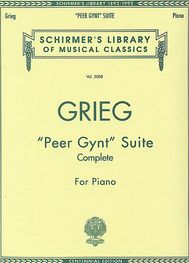
Grieg kept on including new pieces and re-organize a great part of the music. The last score was distributed in 1908, a year after Grieg kicked the bucket, with 23 pieces enduring an aggregate of about a hour and a half.
Second to Grieg's Piano Concerto, the Peer Gynt Suite No.1 is the writer's most prevalent work. For a new Hollywood theater company, the Holocaust play 'Bent' demonstrates excessively eager1/26/2017
Editorial staff
loading...
With inauspicious stories of conservative radicalism in parts of the world, there's a strong case to be made for a recovery of the Holocaust play "Bent" so not long after the prominent Mark Taper Forum generation under two years back.
Contentions in support of the new Hollywood Stage Company's yearning yet exceeding creation are harder to stop by, be that as it may. Martin Sherman's 1979 play kicked things off spotlighting the mistreatment of gay people. Gays were so chided under the Nazi administration that the play's morally tested hero — an inhumane imprisonment detainee named Max (Lior Burlin) — respects the status redesign in getting himself named Jewish as opposed to gay. Among the nonprofessional troupe, in any case, the perverted Nazi officers (Sean Lee, Rebecca Jarrell) demonstrate more extraordinary and trustworthy than Max and his kindred casualties, lessening the generation's enthusiastic effect. This uneven execution quality could be a harbinger of the little theater scene in the wake of the Actors Equity Assn's. adjustment in principles for L.A. theaters with 99 seats or less. Pundits of the change fear it will forcefully lessen open doors for union experts to show up on little nearby stages and constrain theater organizations to settle for less prepared ability.
A conceivably reduced throwing pool might be an unavoidable truth for organizations on shoestring spending plans, however new kid on the block stumbles in this generation of "Bowed" show arranging pitfalls that be could have been kept away from by adhering to a script as composed.
Behaving in a dubious manner with a script is once in a while a profitable drive, particularly for an organization with no reputation. In the principal demonstration of "Twisted," the writer utilizes the libertine way of life of Max and his darlings — incorporating one number in a drag club — for a particular reason: to sensationalize how Germany's lenient Weimar Republic period reached a vicious end as the Nazis cemented their energy. Here, chief, co-maker and entertainer Robert Hayman shifts the adjust into over-amped peepshow region by including a 20-minute poor man's "Men's club"- style preshow, delaying the bareness in another scene, and growing his part as the club's emcee. While these liberalities may raise the creation's interest to some ticket purchasers, they come to the detriment of the more extensive sensitivity and awfulness the main demonstration is built to induce for the casualties. At the point when the second demonstration movements to Max's constrained work imprisonment in Dachau, his captors express that rest breaks most recent three minutes, yet his significant sentimental trade with a kindred detainee amid one of those breaks times in at seven. More noteworthy consideration and conscious arranging would better serve a script with an auspicious message about the delicacy of flexibility. |
Archives
February 2020
Theater as particular art. Theater makers, theater plays. etc ... |
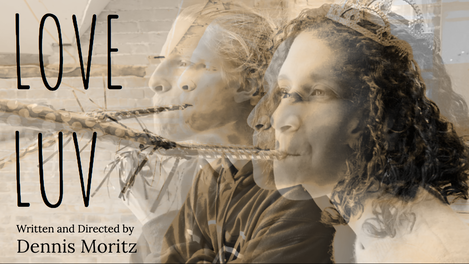
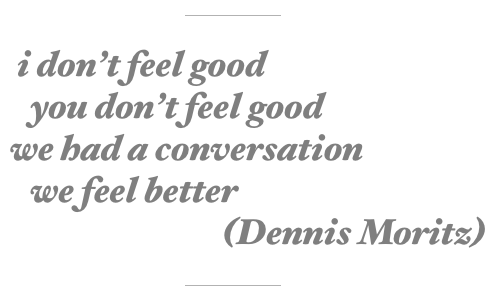
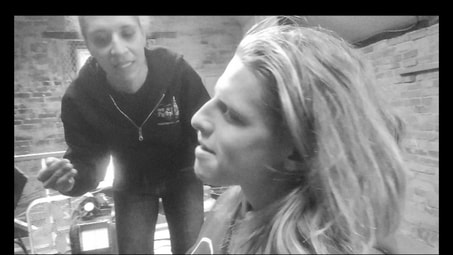
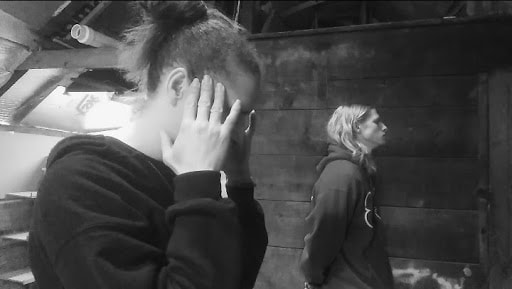

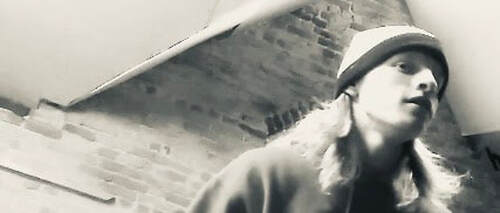
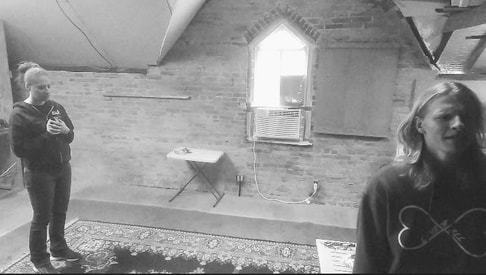

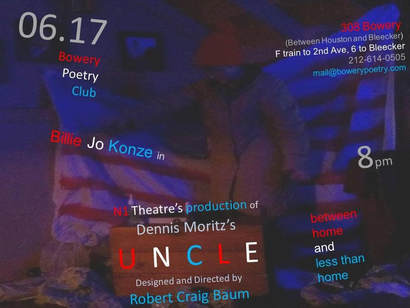
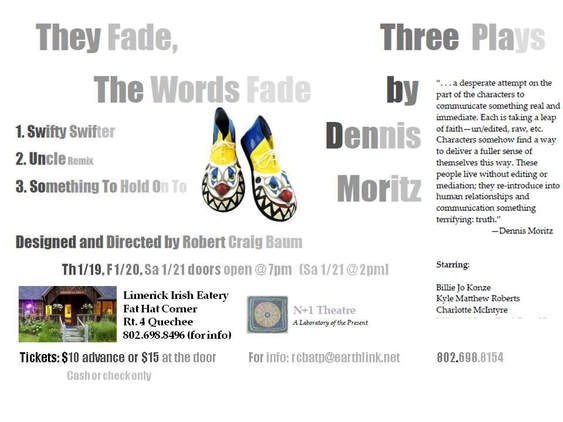
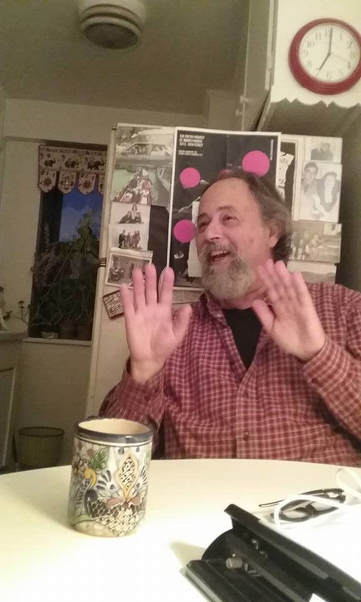
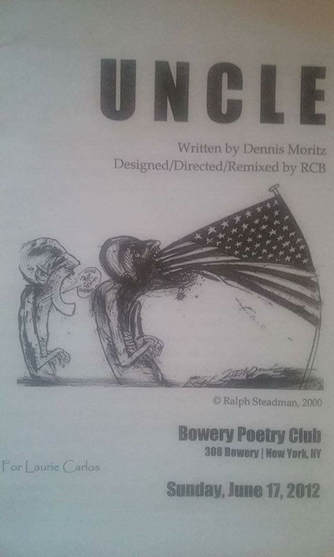
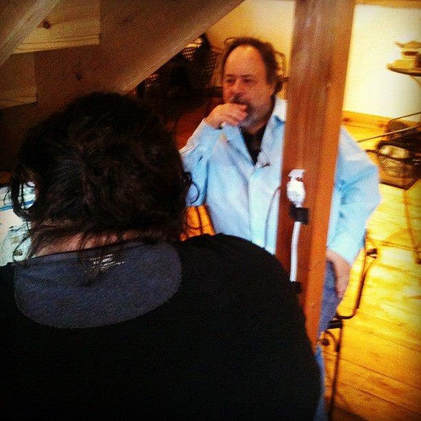
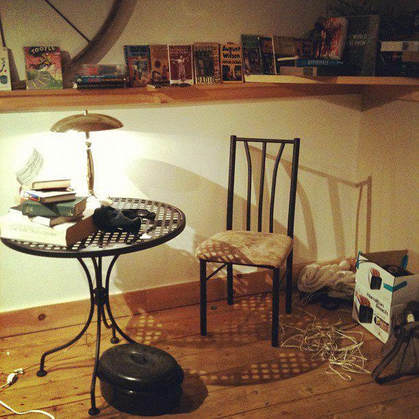
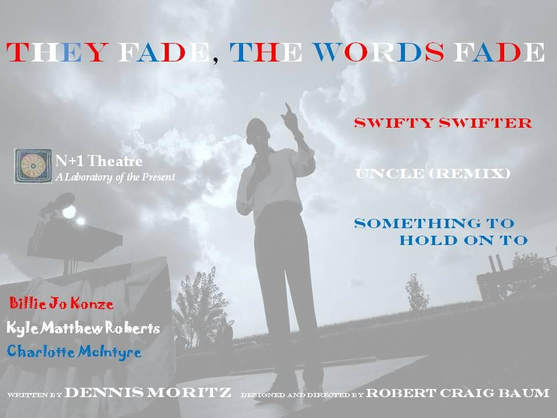
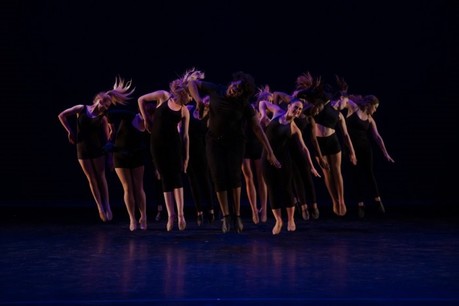
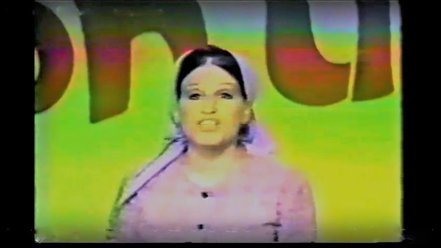
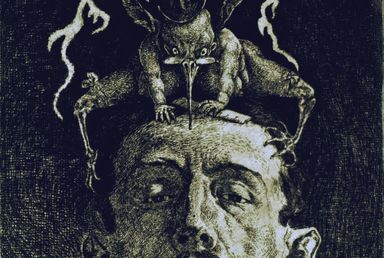
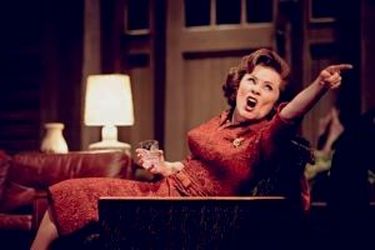
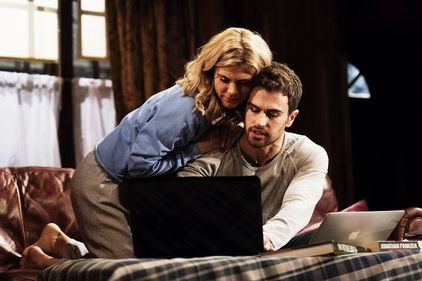
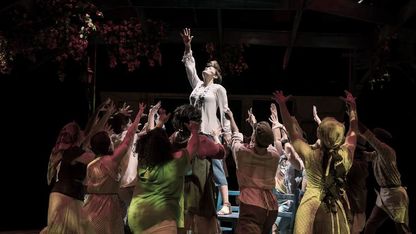
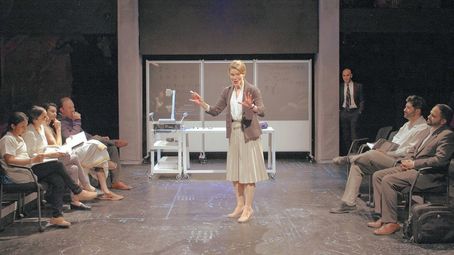

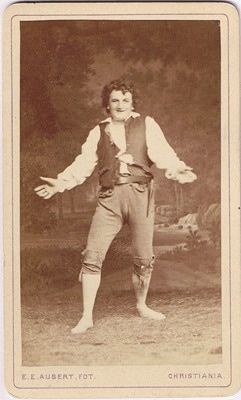
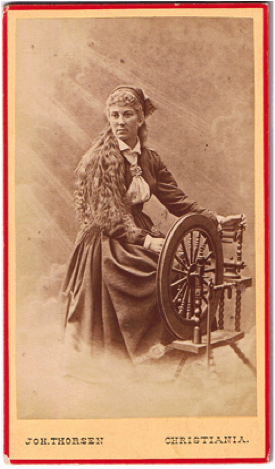
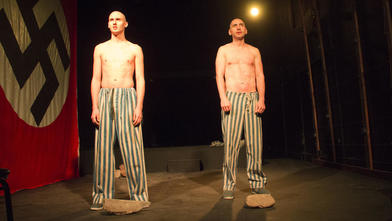
 RSS Feed
RSS Feed
